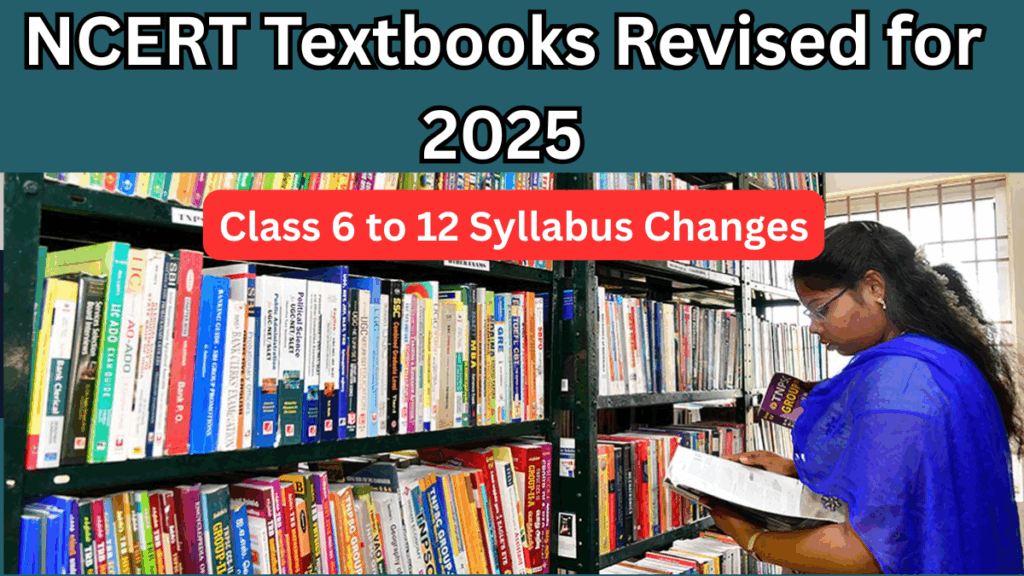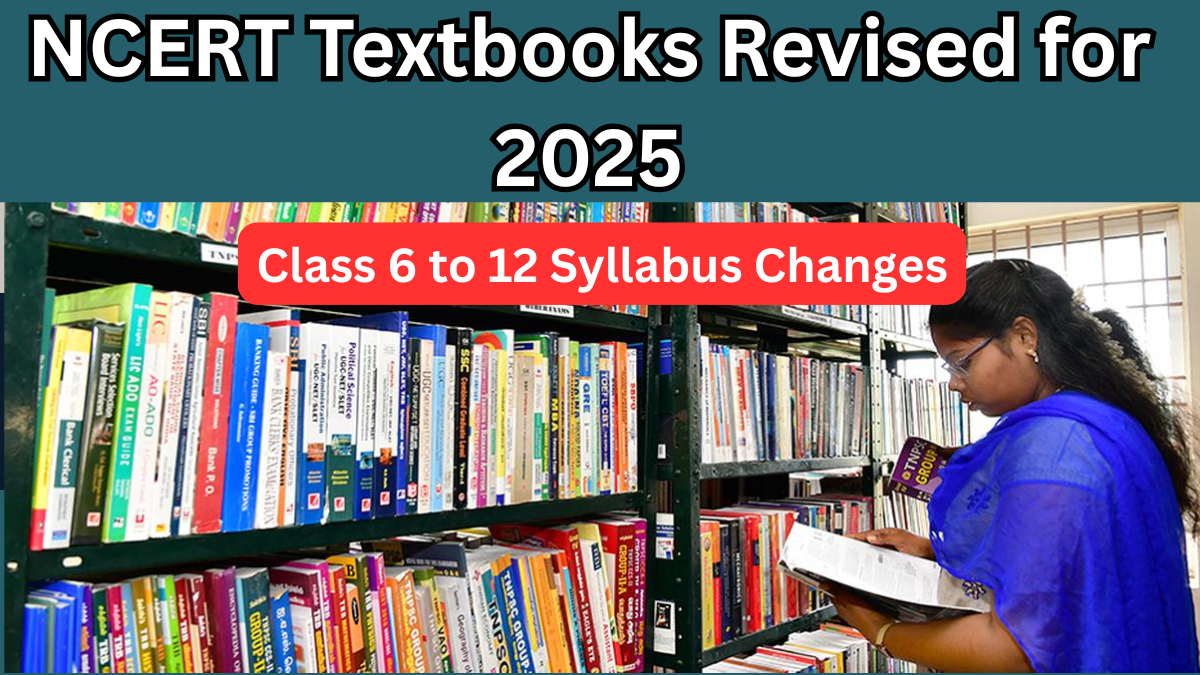The National Council of Educational Research and Training (NCERT) has officially released revised textbooks for the academic year 2025. These changes align with the National Education Policy (NEP) 2020 and are designed to promote conceptual clarity and reduce rote learning.
Whether you’re a student, parent, or teacher, it’s important to understand what’s new in the 2025 syllabus and how these NCERT textbook updates will affect classroom learning.

What’s New in the 2025 Syllabus?
The revised 2025 syllabus aims to make learning more holistic and flexible. Here’s a glimpse into what has changed:
Key Objectives Behind the Changes
-
Align with NEP 2020 guidelines
-
Reduce content overload
-
Focus on critical thinking and real-world application
-
Integrate Indian knowledge systems and values
Grades Affected: Class 6 to 12
The NCERT textbook updates impact a wide range of subjects from Class 6 to Class 12, including Science, Social Science, Mathematics, and Languages.
Subjects Revised
| Class Level | Subjects with Major Revisions |
|---|---|
| Class 6-8 | Science, Social Science, Mathematics, English, Hindi |
| Class 9-10 | History, Civics, Geography, Science, Mathematics |
| Class 11-12 | Political Science, History, Economics, Physics, Chemistry, Biology |
Highlights of NCERT Textbook Updates – Subject-Wise
Science
-
Real-life examples added to enhance understanding
-
Environmental issues and climate change given more focus
-
Less memorization, more project-based tasks
Social Science
-
Colonial history condensed for balanced representation
-
Contemporary events added (e.g., COVID-19 pandemic, digital India)
-
Local history chapters introduced in Class 6-8
Mathematics
-
More application-based questions
-
Logical reasoning and puzzles added
-
Data interpretation and technology-linked concepts introduced
Languages
-
Emphasis on multilingual learning
-
Stories from diverse cultures included
-
Grammar simplified for better comprehension
Why These Changes Matter
The NCERT textbook updates are more than just academic adjustments—they reflect a shift in educational philosophy.
Benefits of the Revised 2025 Syllabus
-
Encourages analytical thinking instead of rote learning
-
Includes more gender-neutral and inclusive content
-
Builds 21st-century skills such as digital literacy and problem-solving
How Students and Teachers Should Prepare
To make the most of the new 2025 syllabus, here are a few tips:
For Students
-
Focus on concept clarity, not memorization
-
Practice project work and open-ended questions
-
Use NCERT’s official digital platforms for interactive learning
For Teachers
-
Adapt lesson plans to include discussions and real-life applications
-
Encourage critical thinking through classroom activities
-
Participate in training sessions by NCERT on the revised content
FAQs on NCERT Textbook Updates 2025
Q1. What classes are affected by the NCERT textbook updates?
The new 2025 syllabus affects students from Class 6 to Class 12 across all major subjects.
Q2. Why has the NCERT revised the textbooks in 2025?
To align with the NEP 2020, reduce syllabus load, and make education more practical, inclusive, and skill-oriented.
Q3. Where can I access the updated NCERT textbooks?
You can download them for free from ncert.nic.in or through the official ePathshala app.
Q4. Are these changes mandatory for all schools?
Yes, all CBSE-affiliated schools are expected to implement the NCERT textbook updates from the 2025 academic year onwards.
Final Thoughts
With these NCERT textbook updates, the 2025 syllabus promises to be more engaging, inclusive, and learner-friendly. Whether you’re guiding your child or preparing your classroom, staying informed and adaptable is key.
Click here to learn more
